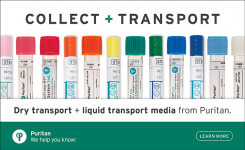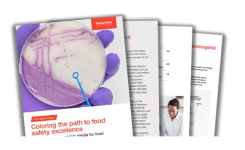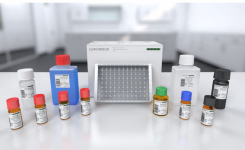Independent Validation of Detect-Ready™ MRSA Assay
go back to news archives| Molecular Detection Inc. (MDI), a company developing Detect-Ready™ assays designed to increase the speed and accuracy of infectious disease diagnosis, have announced that its Detect-Ready MRSA assay has received its first independent validation in a study conducted at St. George's Healthcare NHS Trust, a leading teaching hospital in the UK. The study results were presented at HIS 2010, the Seventh International Conference of the Hospital Infection Society1. In a comparative study of the Detect-Ready assay and two other widely used PCR-based MRSA screening tests, the St. George's researchers confirmed that the performance of the Detect-Ready MRSA assay was better than or equivalent to Becton Dickinson's GeneOhm™ MRSA ACP Assay and Roche's LightCycler® MRSA Advanced Test. Based on the results of this study, MDI's Detect-Ready is now used as the molecular assay of choice in the MRSA screening programs at St George's. 'Following this comparative study, St. George's has adopted the Detect-Ready MRSA kit for routine MRSA screening in our intensive care unit (ICU), as a result of the high sensitivity and specificity we observed and the kits' ease-of-use and cost-effectiveness,' said Dr. Cassie Pope, Clinical Scientist of St. George's. 'The Detect-Ready MRSA kit provides a number of advantages, including software that provides non-subjective interpretation and straight-forward reporting. The inclusion of multiple gene targets in the Detect-Ready MRSA test appears to minimize false positive results, reducing both unnecessary resource deployment and the inconvenience to patients wrongly labeled as MRSA positive,' said Kay Capaldi, Chief Biomedical Scientist of St George's. 'St. George's is one of the most respected research hospitals in the UK, so we are especially pleased to receive their independent validation confirming the excellent sensitivity and specificity of our Detect-Ready MRSA assay,' said Todd Wallach, CEO of MDI. 'We believe our Detect-Ready MRSA assay offers healthcare providers a high-performance MRSA screening test with an unmatched combination of accuracy, speed, flexibility and cost-effectiveness, and we look forward to the results of additional comparative studies currently underway.' The Detect-Ready MRSA kit is a qualitative real-time PCR in vitro diagnostic test for the direct detection of MRSA nasal colonization to aid in the prevention and control of MRSA infections in hospitals and other healthcare settings. The proprietary technology in the Detect-Ready kits provides a unique differential diagnosis engine that produces highly accurate results, minimizing the false positives and false negatives experienced with other MRSA screening kits. Samples for testing are simple to obtain using nasal swabs and the assay's ready-to-use pre-mixed reagents require only the addition of patient sample to run the test, which provides results in less than three hours. Unlike other testing products that require special handling, Detect-Ready kits are off-the-shelf room temperature-stabilized and require no refrigeration. Detect-Ready kits are compatible with multiple rt-PCR platforms currently found in clinical laboratories, including the Roche LightCycler®, Qiagen Rotor-Gene® and Cepheid SmartCycler®. The flexibility to leverage existing infrastructure and equipment to run Detect-Ready assays eliminates the need for additional hospital capital investment. The Detect-Ready MRSA assay kit has received the CE mark certification for sales in the European Union. It is distributed in the UK and Ireland by Launch Diagnostics. The Detect-Ready MRSA assay is also currently available in Germany, Switzerland, Spain, Austria and Australia. Reference: 1. Pope CF, Capaldi K. Comparison of the analytical sensitivity of three commercial real time PCR assays for the detection of MRSA. Poster session presented at: Seventh International Conference of the Hospital Infection Society; 2010 Oct 10-13; Liverpool, UK. |
NOTE: This item is from our 'historic' database and
may contain information which is not up to date.
Source : Molecular Detection Inc. View Company Information
Posted on November 2, 2010
















